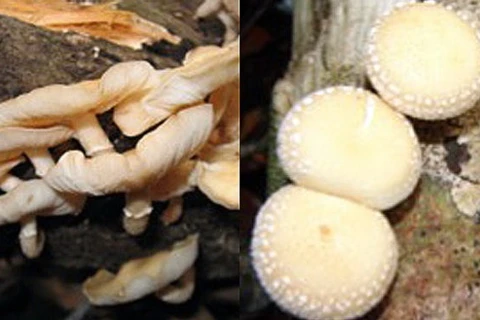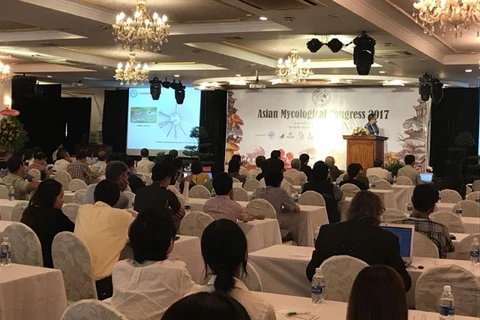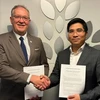 Le Thanh Liem, Vice Chairman of the HCM City People’s Committee, speaks at the opening of the Asian Mycological Congress 2017 in the city. (Photo: VNA)
Le Thanh Liem, Vice Chairman of the HCM City People’s Committee, speaks at the opening of the Asian Mycological Congress 2017 in the city. (Photo: VNA) HCM City (VNA) - Vietnam should have a long-term programme on mycological researches as the country has a tropical climate, a favourable condition for developing fungi, said Trinh Tam Kiet, Chairman of the Vietnam Mycological Association.
“In life, there are millions of various species of fungi. They involve many issues in life, including use as food for humans. Many species cause diseases or are used as medicine,” Kiet said on the sidelines of the Asian Mycological Congress 2017 conference being held in Ho Chi Minh City.
Compared to other countries in the world, Vietnam’s mycological research and application is 50 to 70 years behind, Kiet said.
Only research on mushroom cultivation and other fungi applications in agriculture are studied in the country, even though Vietnam has the potential to develop fungi as medicine for treating cancer or other diseases, he said.
The government should increase investment and create long-term, comprehensive programmes related to mycology in many sectors, he said, adding that more scientists in the country should study mycology.
Le Thanh Liem, Vice Chairman of the HCM City People’s Committee, said the city had recently made several investments in modern scientific facilities, mostly at the Biotechnology Centre and Hi-tech Agricultural Park.
These institutes, with teams of young scientists, have many significant contributions to agricultural science as well as mycology, according to Liem.
Professor Lei Cai of the State Key Laboratory of Mycology at the Chinese Academy of Science’s Institute of Microbiology said: “Diversity of fungi is largely ignored as a public concern”, noting that there was a boom in emergent fungal diseases.
The Asian Mycological Congress 2017 is being organised by the Mycological Society of HCM City.
Kiet said that more than 250 participants from all over the world will have an opportunity to exchange experiences, technology and research work.
The congress, which ends on October 13, is focusing on basic to applied research on fungi in ecosystems, fungal biochemistry and physiology, and mushroom cultivation.-VNA
VNA





















